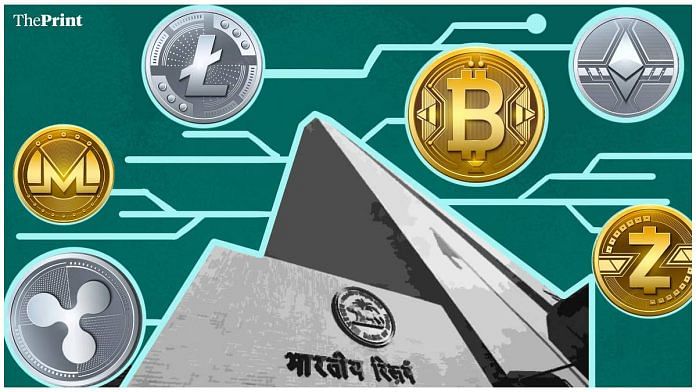On 12 January, the Indian government blocked access to the URL of nine offshore crypto-asset exchange websites because they did not comply with the Prevention of Money Laundering Act 2002. These include Binance and Kucoin, which are market leaders in crypto trading.
The move prompted Indian investors to shift their crypto holdings to compliant local exchanges. However, efforts to block access to URLs are only a temporary fence that crypto traders and investors can easily jump over. Indian authorities must adopt a more dynamic approach and look to build collaborative regulatory frameworks with help from industry.
Incentives for Compliance
The Financial Intelligence Unit (FIU), India’s anti-money laundering watchdog, established registration and reporting requirements for crypto exchanges and other actors such as wallet providers in July 2023. Top executives of such entities are now mandated to be physically present at the FIU headquarters to share financial and tax records with representatives and register their firms.
However, most offshore operators chose not to register in India, and take advantage of regulatory differences between countries. For instance, compliant exchanges in India need to levy a one per cent tax-deducted-at-source (TDS), on every sale of a crypto-asset on their networks. Their offshore counterparts, on the other hand, operate from tax havens such as the British Virgin Islands, Seychelles and Cayman Islands.
Blocking orders on the nine unregistered marketplaces might look like a deterrent for unregistered entities. However, their effectiveness is hollowed by the ease with which URL blocking can be circumvented, as we discuss below.
Also Read: Faced with 90% drop in business, crypto exchanges are moving out of India, but with hopes of return
Going around the block
Between 2015 and 2022, the Indian government issued over 50,000 URL-blocking orders. These were implemented by Internet Service Providers (ISPs), who blocked access to the URLs in India through a variety of technical measures. For instance, they may tamper with the Domain Name System (DNS) records of the sanctioned website, or block the specific IP address it is hosted on.
About half of all blocking orders issued in the above period were targeted at copyright infringers. Yet, Indians remain one of the highest consumers of online pirated content through torrent applications and streams. Operators of piracy websites often create mirror counterparts that contain the same infringing content, or auto-redirect users to websites with different IP addresses to blunt the effectiveness of URL blocking.
Further, users can access blocked websites from a remote location by using Virtual Private Networks (VPNs), which allow users to bypass or mask their online activity from ISPs. Roughly one in four Indian internet users use these software and it is quite possible that many investors use them to access blocked crypto exchanges.
Additionally, the volatility of cryptocurrencies can lead to significant financial risks for investors, making it crucial to stay informed about market trends and predictions. For instance, recent analyses suggest that Ethereum’s price may dip further, which could impact trading strategies for those using peer-to-peer methods.
For crypto investors, multiple avenues exist to circumvent URL blocks. Apart from VPNs, they can transact with others on a peer-to-peer (p2p) basis—without the participation of intermediaries like crypto exchanges and depository institutions. A recent study by New Delhi-based think tank Esya Centre highlights that 90 per cent of the total volume of crypto trading by Indians was conducted on a p2p basis between July 2022 and July 2023. Thus, blocking URLs of a few exchanges will not automatically enlarge India’s regulatory net.
Also Read: Lucknow to Ludhiana, small-town women are entering crypto world, leaving behind tech bros
Constant vigilance
The government has not created any incentives for unregistered crypto-asset exchanges to register or pay tax in India. And as things stand, URL blocking orders remain the only deterrent for non-compliance with registration requirements. Incentives are relatively easy to solve for—the Indian crypto industry has been asking for a reduction in the TDS levy since it was announced in the Union Budget 2022. This proposal should be considered seriously.
Simultaneously, ensuring that the deterrent is effective will require more ingenuity from the government. State agencies cannot hope to police digital natives who wish to trade novel digital assets with counterparts from around the world. Instead, they can draw on developments in content markets to devise mechanisms for dynamic monitoring and supervision of URL-blocking orders against illegal crypto businesses. For instance, the Maharashtra Cyber Digital Crime Unit works closely with content owners from Bollywood to enforce copyright law and build lists of infringing websites or frequent offenders.
Agencies like the FIU can leverage private sector capacity to supervise the crypto market. It can enable registered entities to serve as ‘trusted flaggers’ and aid monitoring efforts. Such a collaboration can help in identifying illegal operators, as well as common means of side-stepping regulations.
A public-private partnership for supervision is also relevant to other industries where offshore operators evade local laws—such as online gambling and digital lending. In both cases, Indian authorities issue URL blocking orders on an ad-hoc basis—often with unintended consequences. Last February, such orders against 94 lending apps inadvertently included legally compliant ones while illegal spin-off apps continued to operate. By embracing a progressive and participative model, the government can give new regulations in fast-evolving digital markets a chance to work.
The authors are associated with Koan Advisory Group, New Delhi. Their views are personal.
This article is part of ThePrint-Koan Advisory series that analyses emerging policies, laws and regulations in India’s technology sector. Read all the articles here.
(Edited by Theres Sudeep)






